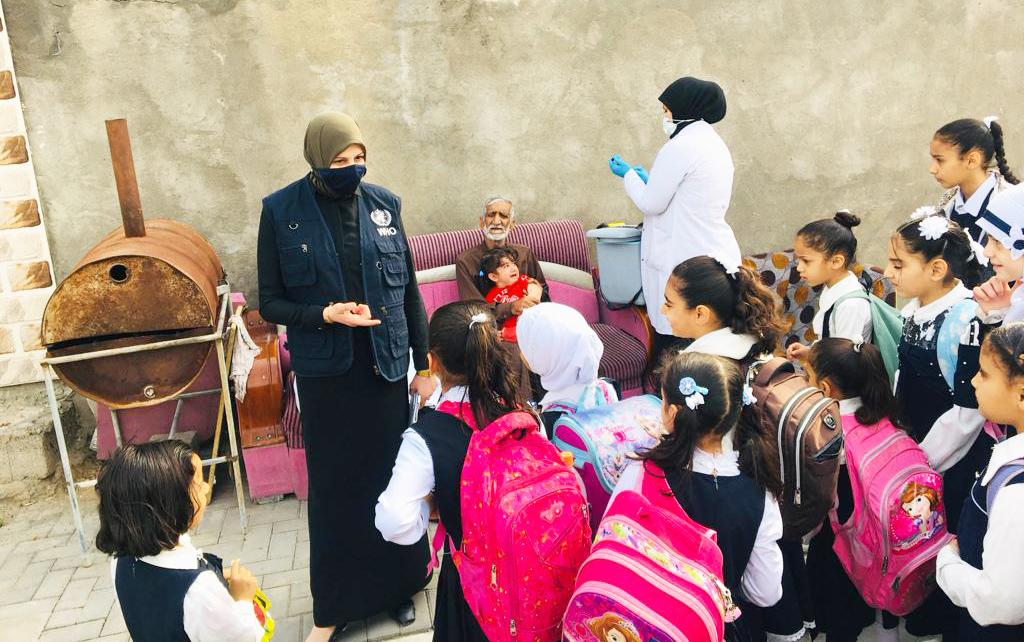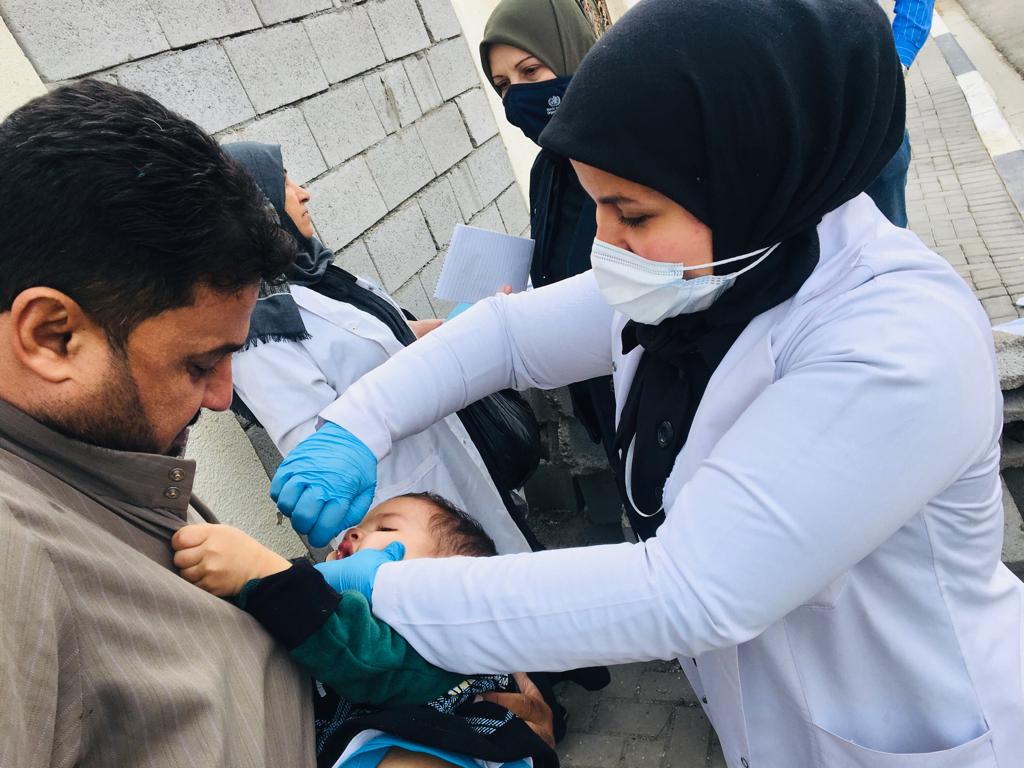
BAGHDAD, 26 January 2023 – UNICEF and WHO have supported the Ministry of Health of Iraq in conducting a nationwide multi-antigen vaccination campaign. The campaign reached more than 400 000 of the most vulnerable children with over one million doses of different vaccines to protect them against vaccine-preventable diseases.
The locations covered by the 10-day campaign, which concluded at the end of 2022, were based on a risk assessment carried out by the Ministry of Health, also supported by UNICEF and WHO. The campaign aimed at reaching the hardest-to-reach children previously missed by routine immunization services.
To ensure the success of the campaign, more than 3000 vaccinators were trained across 124 districts within 19 health directorates and national awareness-raising campaigns were conducted on the importance of vaccines. These reached millions of parents and children in most Iraqi governorates. Campaign logistics and field implementation were also supported through transport of vaccination teams and a digital dashboard, established to compile the results of the campaign and evaluate its progress on daily basis.
“As the largest vaccine buyer in the world, UNICEF remains committed to supporting the national immunization programme in Iraq, so that no child is left behind,” said Ms Sheema SenGupta, UNICEF Representative in Iraq. “Immunization is proven to be one of the most effective public health interventions, both preventing community outbreaks and giving every child the opportunity to survive and thrive.”

Prior to the campaign, intensified integrated immunization outreach services in Iraq have reached 90% of children aged under 5 with the third dose of diphtheria, pertussis and tetanus (DTP) and the first dose of measles vaccines, the highest coverage in 2 decades. This multi-antigen campaign aimed at reaching those children who had still missed out on these and other vaccines, with the hope of minimizing the resurgence of vaccine-preventable diseases and advancing coverage to 95%.
"Having a healthy start in life is a human right for all newborns. However, during COVID-19, some children missed their immunization, which increased their vulnerability to childhood diseases. This campaign is another safety net that ensures that all children in Iraq are immunized, protected and healthy," said Dr Ahmed Zouiten, WHO Representative in Iraq. “The campaign was a great success in ensuring that no child is left behind.”
The campaign, mostly funded by a US donor, is a critical step towards protecting children from deadly and disabling diseases. For over two centuries, vaccines have safely reduced the scourge of diseases like polio, measles and smallpox, helping children grow healthy and happy. UNICEF and WHO remain committed to supporting the Ministry of Health to ensure that every child in this country has access to the care and vaccines they need to attain their full potential.
ABOUT UNICEF
UNICEF works in some of the world’s toughest places, to reach the world’s most disadvantaged children. Across 190 countries and territories, we work for every child, everywhere, to build a better world for everyone. For more information about UNICEF and its work for children, visit www.unicef.org
Follow UNICEF Iraq on our website, Instagram, Twitter and Facebook.
For more information please contact:
Miguel Mateos Muñoz, Chief of Communication and Advocacy, UNICEF in Iraq email:
Monica Awad, Communication Specialist, UNICEF in Iraq, email:
ABOUT WHO
WHO leads global efforts to expand universal health coverage. We direct and coordinate the world’s response to health emergencies. And we promote healthier lives – from pregnancy care through old age. Our Triple Billion targets outline an ambitious plan for the world to achieve good health for all using science-based policies and programmes.
For more information please contact:
Sadeq Al-Wesabi
Communication Officer
WHO Iraq
email:


